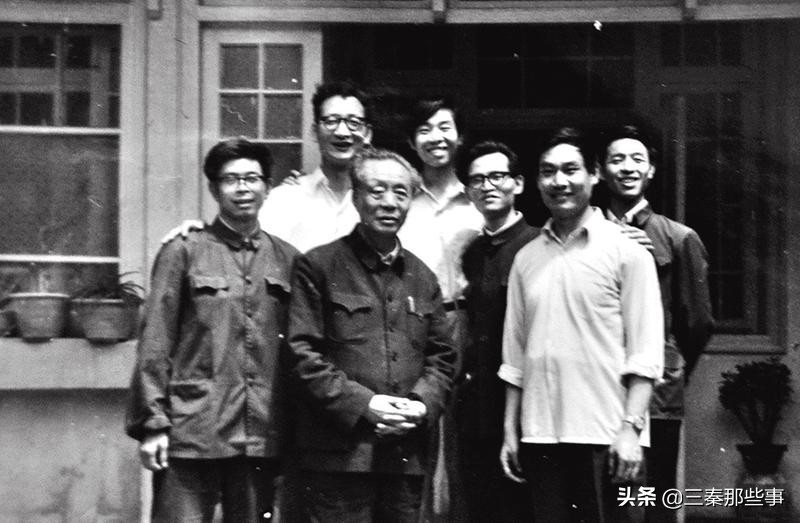"Poetry Hero" Ai Qing and the poet's friend
Reporter Zhang Qiong

Guo Yingwen, a poet in our city, has a group of old photos that have been treasured for 38 years, which were taken when he visited Ai Qing in 1983. This group of black and white photos is carefully wrapped in soft paper in three layers, which shows the collector's love and cherishment of it, and one of the photos in the front row is 73-year-old Ai Qing, who is dressed in a dark Mountain suit, his hair is combed back, his eyes are resolute, optimistic, and amiable to take a photo with his poet friends (see right picture).
Ai Qing, whose original name was Jiang Zhenghan, wrote poems such as "Dayan River", "North", and "Toward the Sun", and was called "the titan of Chinese poetry" by the Nobel Prize winner and Chilean poet Neruda. In May 1983, Guo Yingwen, who worked at the Weibin District Cultural Center, together with poets Yan Yan, Fan Yuan, Wu Quanmin, Wen Shijie and Shen Shoucai, went to Beijing to visit the long-admired poet Ai Qing.
When Guo Yingwen was in middle school, he fell in love with Ai Qing's poems. On the morning of May 25, 1983, with reverence for his idol, Guo Yingwen was both excited and nervous when he saw Ai Qing himself. After a few minutes, Ai Qing's humorous conversation and approachable personality dissolved the tension of Guo Yingwen and others. Subsequently, everyone asked Ai Qing about the problem of poetry creation, Guo Yingwen and Wu Quanmin each read a poem of their own, and Ai Qing said after listening carefully that writing poetry should abandon those non-essential life phenomena and dig out the shining things. This sentence became an essential point for Guo Yingwen's future creations. During the conversation, Fan Yuan said that he intended to devote himself to writing about the peasants, writing about the fate of the peasants, and singing for the peasants. After listening, Ai Qing nodded his head in approval, saying that China's one billion people (referring to that time), eight hundred million peasants, Chairman Mao has been studying the countryside and peasant problems all his life. It is the duty of the poet to write about the peasants with a pen, to write about their lives and ideals, and it is a broad creative path. This affirmation pointed out the creative path for Fan Yuan.
When talking about "obscure poetry", Ai Qing clearly put forward his own point of view: poetry, let people read it. Ai Qing advocated writing poems that were quick and clear, not ambiguous, and not writing "poems" that made readers misunderstand and fall into the fog of the five miles. Those "poems" that even professors cannot read cannot stand the test of time and readers. Ai Qing said this and did the same, and his poems such as "I Love this Land", "To the Sun", and "Spring" are not difficult to read, but they are forced through the back of the paper.
Subsequently, at the invitation of Fan Yuan, Guo Yingwen and others, Ai Qing titled the journal and the work, and Guo Yingwen's poetry collection "The Love of the Big Tree" was Ai Qing's title, and Ai Qing also mentioned a past that passed through Baoji to Yan'an. It turned out that in 1941, the "White Terror" intensified, and in order to preserve the revolutionary forces, the Party organization quickly arranged for the retreat of revolutionary cultural figures in Chongqing. In early February of that year, Ai Qing dressed up in disguise and hid his name, and went north to Yan'an with four cultural figures, passing through Baoji, an experience that is also recorded in the "Ai Qing Anthology".
Chatting and chatting, more than two hours have passed, in order not to disturb Ai Qing's work, Guo Yingwen and others took a group photo with Ai Qing to commemorate the occasion. This left a group of photos, Guo Yingwen treasured three photos, in addition to a group photo, there are two Photos of Ai Qing and Guo Yingwen and others talking about poetry, in the photo Ai Qing sometimes contemplative, sometimes smiling, happy, showing the care and guidance of young poets' creation, and their sincere love for poetry.